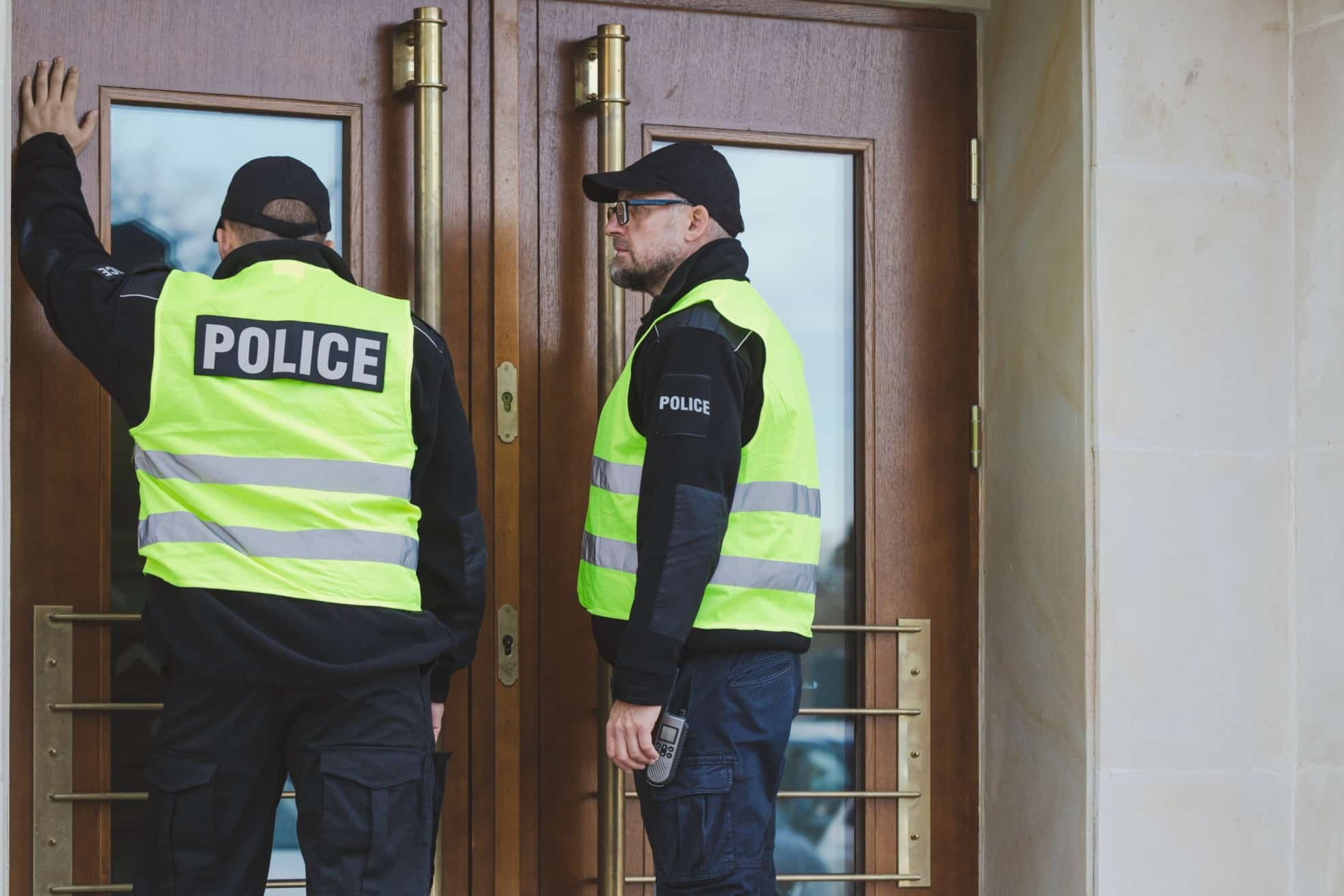CAN POLICE SEARCH MY CAR IF THEY CLAIM TO SMELL MARIJUANA IN MISSOURI?

You’re driving through Kansas City. You get pulled over — maybe for speeding, maybe for a broken tail light, maybe for nothing you can identify at all.
The officer approaches your window, leans in, and says the words every driver fears:
“I smell marijuana. Step out of the vehicle.”
Just like that, a simple stop becomes a full-blown search of your car. But here’s the question that matters — Can police actually search your vehicle in Missouri just because they claim they smell marijuana?
The answer is complicated and often abused. If you’ve been ticketed for marinjuana possession after an illegal search in Missouri, don’t wait another moment — call KC Defense Counsel today and speak with an experienced Kansas City criminal defense lawyer. We can fight the search, suppress the evidence, and protect your rights.
MISSOURI LAW GIVES POLICE POWER BUT IT’S NOT UNLIMITED POWER
For decades, the “smell of marijuana” has been one of the most frequently used justifications for car searches. Under the Fourth Amendment, police can search your vehicle without a warrant if they have probable cause, a reasonable belief that evidence of a crime is inside.
Courts in Missouri have consistently ruled that the odor of marijuana can create probable cause for a search.
BUT — and this is critical — the law has changed dramatically since marijuana became partially legalized for medical use. Police officers now must consider:
- Whether someone in the vehicle has a medical marijuana card
- Whether the smell alone is enough to prove criminal activity
- Whether the odor indicates burnt marijuana or raw marijuana
- Whether there are additional signs of impairment
This uncertainty gives your attorney powerful angles to challenge the search.
HOW HAS MEDICAL MARIJUANA CHANGED HOW COURTS SEE “MARIJUANA ODOR”
Before medical marijuana was legalized in Missouri, the smell alone was enough to justify a search. Today, that same smell:
May be legal
May be unrelated to impairment
May not indicate criminal activity at all
Could come from legally purchased products
The smell of marijuana no longer automatically means a crime has occurred.
This gives defense lawyers new leverage to argue searches are unconstitutional.
WHEN POLICE CAN LEGALLY SEARCH BASED ON SMELL
Police may be legally allowed to search if:
- The officer identifies the smell of burnt marijuana
- You appear impaired
- The stop involves a minor
- The officer sees marijuana or paraphernalia in plain view
- The smell is strong and specific enough to indicate recent use
- There are other indicators of illegal activity
But even in these cases, the search must be:
- Limited
- Justified
- Conducted lawfully
- Based on the officer’s credible observations
If the officer exaggerates, your lawyer can challenge it.
WHEN POLICE CANNOT SEARCH YOUR CAR BASED ON SMELL
Police may NOT have probable cause if:
- You have a valid medical marijuana card
- The odor alone does not indicate impairment
- There are no visible signs of illegal activity
- The stop was unrelated to drugs
- The officer cannot clearly describe the odor
- The officer has a history of “odor-based” searches
- The supposed smell conflicts with bodycam or dashcam footage
A skilled defense lawyer can argue the search was illegal and if the search was illegal, all evidence found must be suppressed.
HOW OFFICERS OFTEN ABUSE THE “I SMELL MARIJUANA” CLAIM
Let’s be honest — Claiming to smell marijuana is the easiest way for an officer to justify a search.
- They don’t need proof.
- They don’t need consent.
- They don’t need a warrant.
- They just need those four words.
This is why skilled Kansas City defense lawyers regularly challenge searches based on smell — and win.
Bodycam footage can expose:
- Officers who never mentioned marijuana until after the search
- Officers who used the claim as a pretext
- Situations where no marijuana was found at all
- False or exaggerated testimony
When the officer’s credibility is damaged, prosecutors often drop or reduce charges.
WHAT YOU SHOULD DO DURING A TRAFFIC STOP IN MISSOURI
If an officer claims to smell marijuana:
- Stay calm
- Do not admit to anything
- Do not volunteer information
- Do not consent to a search
Say clearly: “I do not consent to a search.”
- Ask if you are free to leave
- Contact a defense lawyer as soon as possible
Even if police search anyway, your refusal protects your case.
HOW AN EXPERIENCED MISSOURI DRUG POSSESSION ATTORNEY CAN HELP
At KC Defense Counsel, we challenge “odor-based” searches by arguing:
- The officer lacked probable cause
- The officer fabricated or exaggerated the smell
- The client had a medical marijuana card
- The smell came from legal marijuana
- The search extended beyond what is allowed
- Police violated constitutional protections
- The search was pretextual or discriminatory
If the search was illegal, all evidence — including drugs, paraphernalia, firearms, or statements — may be thrown out. This can lead to:
- Charges dismissed
- Charges reduced
- Evidence suppressed
- Better plea negotiations
- A full acquittal at trial
Yes, Missouri police can claim they smelled marijuana but that doesn’t mean the search was legal. With medical marijuana now legal, officers must justify searches far more carefully.
If they didn’t, your entire case may be vulnerable.
CHARGED WITH MARIJUANA POSSESSION? CALL KC DEFENSE COUNSEL TODAY
If police searched your car in Kansas City because they “smelled marijuana,” you may have strong grounds to fight the charges.
Contact KC Defense Counsel today. Our experienced Kansas City criminal defense lawyers know how to challenge unlawful searches, suppress evidence, and protect your rights.
Traffic violations may seem small, but their impact can be big, especially if you drive for work or rely on your license every day. At Speeding Ticket KC, our affordable Kansas City possession defense attorneys handle every case with urgency and precision. We’ve built our reputation on helping Missouri drivers keep their records clean and their insurance rates low. Whether you received a ticket in downtown Kansas City or anywhere in the state, we’ll guide you through the process from start to finish.
Don’t plead guilty or pay your ticket without talking to a lawyer.
Call Speeding Ticket KC now for a fast, free case review and let us help you fight back.
Cities we serve: Adrian, Archie, Bates City, Belton, Blue Springs, Buckner, Butler, Cameron, Claycomo, Cleveland, Drexel, Fairview, Ferrelview, Gladstone, Grain Valley, Grandview, Greenwood, Houston Lake, Independence, Kansas City Missouri, Kearney, , Knob Noster, Lake Lotawana, Lake Tapawingo, Lake Waukomis, Lake Winnebago, Lawson, Lee’s Summit, Liberty, North Kansas City, Oak Grove, Oakview, Parkville, Peculiar,, Platte City, Platte Woods, Plattsburg, Pleasant Hill, Raymore, Raytown, Riverside, Smithville, Sugar Creek, Tracy, Warrensberg, Weatherby Lake, and Weston.
Statewide: Missouri State Highway Patrol and Sheriff Counties we serve: Bates County, Cass County, Clay County, Jackson County, Platte County, Ray County.
Contact our experienced Kansas City traffic defense lawyers near me in Missouri and let us help begin building your defense. Let us help.
Disclaimer: This page is for informational purposes only and does not create an attorney-client relationship. Always consult qualified counsel regarding your unique situation.



















